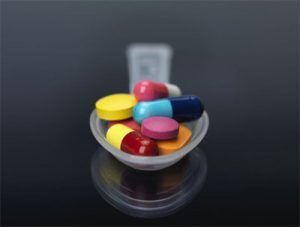- Home
- Editorial
- News
- Practice Guidelines
- Anesthesiology Guidelines
- Cancer Guidelines
- Cardiac Sciences Guidelines
- Critical Care Guidelines
- Dentistry Guidelines
- Dermatology Guidelines
- Diabetes and Endo Guidelines
- Diagnostics Guidelines
- ENT Guidelines
- Featured Practice Guidelines
- Gastroenterology Guidelines
- Geriatrics Guidelines
- Medicine Guidelines
- Nephrology Guidelines
- Neurosciences Guidelines
- Obs and Gynae Guidelines
- Ophthalmology Guidelines
- Orthopaedics Guidelines
- Paediatrics Guidelines
- Psychiatry Guidelines
- Pulmonology Guidelines
- Radiology Guidelines
- Surgery Guidelines
- Urology Guidelines
Diabetes medication SGLT-2 inhibitors do not cause UTI, reassures new study

Diabetes patients taking SGLT-2 inhibitors may not be at risk for urinary tract infection risk, finds a recent study.
USA: Patients with type 2 diabetes ltaking sodium-glucose cotransporter-2 (SGLT-2) inhibitors, do not seem to be at an increased risk for severe urinary tract infections (UTIs) compared to patients taking other anti-diabetic medications, indicate results from a large population-based study published in the Annals of Internal Medicine.
The use of sodium-glucose cotransporter-2 inhibitors, do not seem to be at an increased risk for has been linked with an increased risk of genital infections. However, the data on its link to UTIs has been unclear and has produced conflicting results.
"SGLT2 inhibitors are the most recently approved class of antidiabetic drugs that reduce blood sugar levels by inhibiting glucose reabsorption in the renal proximal tubule. Because of this mechanism of action, a strong biological rationale arises for an increased risk for UTIs. The higher glucose concentration in urine with SGLT-2 inhibitor use may promote bacterial growth," Kristian B. Filion and Oriana H. Yu from Jewish General Hospital, Montreal, Quebec, Canada, explain in an accompanying editorial.
In 2015, the U.S. Food and Drug Administration (FDA) issued a warning about the increased risk of UTIs among the users of SGLT2 inhibitors due to some reports of sepsis with UTIs and pyelonephritis. Given the limitations of the data, it is not clear if this risk is present in clinical practice.
Chintan V. Dave, Brigham and Women's Hospital and Harvard Medical School, Boston, Massachusetts, and colleagues conducted this population-based cohort study to assess whether patients taking sodium-glucose cotransporter-2 (SGLT-2) inhibitors are at increased risk for severe UTIs compared with those taking other anti-diabetic medications [dipeptidyl peptidase-4 (DPP-4) inhibitors or glucagon-like peptide-1 receptor (GLP-1) agonists].
The researchers created two cohorts and matched 1:1 on the propensity score. Cohort 1 included new users of SGLT-2 inhibitors and dipeptidyl peptidase-4 inhibitors (DPP-4). Cohort 2 included new users of SGLT-2 inhibitors and glucagon-like peptide-1 receptor (GLP-1) agonists. 123 752 patients were identified in cohort 1 and 111 978 in cohort 2 in the 2 databases.
The primary outcome was a severe UTI event, defined as hospitalization for primary UTI, sepsis with UTI, or pyelonephritis.
Also Read: SGLT2 inhibitors do not increase bladder cancer risk, contrary to concerns raised
Key findings:
- In cohort 1, persons newly receiving SGLT-2 inhibitors had 61 severe UTI events, compared with 57 events in the DPP-4 inhibitor group.
- In cohort 2, those receiving SGLT-2 inhibitors had 73 events, compared with 87 events in the GLP-1 agonist group.
- Findings were robust across sensitivity analyses; within several subgroups of age, sex, and frailty; and for canagliflozin and dapagliflozin individually.
- SGLT-2 inhibitors were not associated with increased risk for outpatient UTIs.
Also Read: SGLT2 inhibitors reduce blood sugar fluctuations in diabetes when added to Sulfonylureas
"In a large cohort of patients seen in routine clinical practice, the risk for severe and nonsevere UTI events among those initiating SGLT-2 inhibitor therapy was similar to that among patients initiating treatment with other second-line antidiabetic medications," concluded the authors.

Disclaimer: This site is primarily intended for healthcare professionals. Any content/information on this website does not replace the advice of medical and/or health professionals and should not be construed as medical/diagnostic advice/endorsement or prescription. Use of this site is subject to our terms of use, privacy policy, advertisement policy. © 2020 Minerva Medical Treatment Pvt Ltd